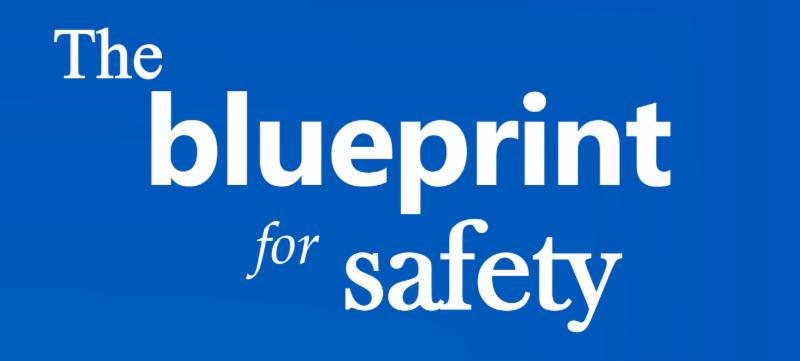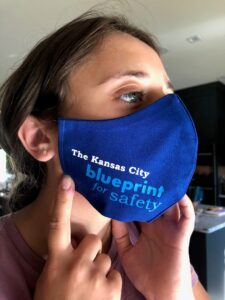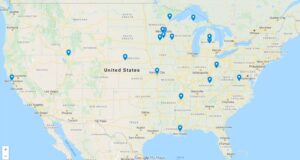
The Blueprint Bulletin provides concrete tools and information to support your work. Each issue features foundational information about the Blueprint for Safety model, updates on Blueprint communities, and ideas about how to identify and address inequities in case outcomes. Access our Blueprint Clearinghouse to learn more about the Blueprint for Safety, it’s strategies, and related research.
Equitable Safety & Accountability for All Communities
Kansas City, Missouri Launches their Blueprint for Safety!
The Blueprint for Safety’s 10 Year Anniversary
Training Resources
Blueprint Communities in the News
Pandemic Resources for Advocates
 Equitable Safety & Accountability for All Communities
Equitable Safety & Accountability for All Communities
Principle 6 of the Blueprint for Safety acknowledges the disparate harm that can result from system intervention in Black, Indigenous and People of Color communities. For this reason, the Blueprint focuses on reducing the unintended consequences and disparity of impact created by the criminal legal system response’s to battering, by promoting an equitable response for the full range of survivors experiencing domestic violence. The Blueprint model asks communities to commit to uncovering inequity and the harmful outcomes of the system’s response to domestic violence crimes. Addressing inequity and disparities in how the system responds to different groups of people requires a distinct commitment by Blueprint communities to assess for equity in all aspects of the system’s response, at every point of intervention across the system.
Early in their Blueprint adaptation processes, Saint Paul agencies and the demonstration site teams identified specific communities of survivors experiencing inequitable criminal legal system responses. With guidance from Praxis and experts within their communities, these sites conducted in-depth explorations of inequity in their community’s criminal legal response. By engaging in the types of information-gathering strategies outlined in the Praxis Institutional Analysis methodology, these communities learned about survivors’ lived experiences and assessed institutional responses, then used this information to create meaningful change.
St. Paul, MN Blueprint for Safety Equity Assessment Summation
The disproportionately high rate of Domestic Abuse No Contact Order violation convictions against Black men.
New Orleans, LA Blueprint for Safety Equity Assessment Summation
The disproportionately high domestic violence arrest rate of Black women.
Duluth, MN Blueprint for Safety Equity Assessment Summation
The experience of Native women who encounter the criminal legal system because of domestic violence.
Shelby Co, TN Blueprint for Safety Equity Assessment Summation
The experience of African American women survivors living in poverty, particularly those arrested for domestic violence-related crimes.
Visit our website for training resources on understanding the complexity of survivors’ lived experiences.
 Kansas City, Missouri Launches their Blueprint for Safety!
Kansas City, Missouri Launches their Blueprint for Safety!
 Congratulations to Kansas City, Missouri on the September 28th launch of the Kansas City Blueprint for Safety. Kansas City has a long history of coordinated community-response to domestic violence incidents, having first conducted their first of several Safety and Accountability Audits in 2007. For the past three years, community-based domestic violence advocates at the Rose Brooks Center and representatives from the Kansas City Police Department, City Attorney’s Office, Jackson County Prosecutor’s Office, Municipal Court, Probation, and the local Detention Center have met monthly to review and create new policies and practices to ensure that Kansas City’s response to domestic violence crimes keeps victims safe and holds offenders accountable. The Mayor of Kansas City joined the Kansas City Blueprint Implementation Team at the Blueprint launch, recognizing foundational aspects of the Blueprint: the importance of long-term collaboration between criminal agencies and finding ways to support survivors. The Kansas City Blueprint Coordinators and Advocates, Annie Struby, Cayla Waller and Tanya Draper-Douthit, are excited to begin implementation of their local Blueprint, training agencies on their new Blueprint responses, and for the ongoing work of monitoring their Blueprint in action. We wish Kansas City the best of luck with its Blueprint for Safety!
Congratulations to Kansas City, Missouri on the September 28th launch of the Kansas City Blueprint for Safety. Kansas City has a long history of coordinated community-response to domestic violence incidents, having first conducted their first of several Safety and Accountability Audits in 2007. For the past three years, community-based domestic violence advocates at the Rose Brooks Center and representatives from the Kansas City Police Department, City Attorney’s Office, Jackson County Prosecutor’s Office, Municipal Court, Probation, and the local Detention Center have met monthly to review and create new policies and practices to ensure that Kansas City’s response to domestic violence crimes keeps victims safe and holds offenders accountable. The Mayor of Kansas City joined the Kansas City Blueprint Implementation Team at the Blueprint launch, recognizing foundational aspects of the Blueprint: the importance of long-term collaboration between criminal agencies and finding ways to support survivors. The Kansas City Blueprint Coordinators and Advocates, Annie Struby, Cayla Waller and Tanya Draper-Douthit, are excited to begin implementation of their local Blueprint, training agencies on their new Blueprint responses, and for the ongoing work of monitoring their Blueprint in action. We wish Kansas City the best of luck with its Blueprint for Safety!
 The Blueprint for Safety’s 10 Year Anniversary
The Blueprint for Safety’s 10 Year Anniversary
Congratulations to all Blueprint for Safety communities on ten years of tireless work to enhance the coordination of community responses to intimate partner violence. Since Saint Paul, Minnesota launched the first Blueprint for Safety in 2010, fifteen communities around the nation have committed to implementing the Blueprint for Safety to increase safety and accountability while reducing harm for survivors and their families.
Guided by the Six Foundational Principles of the Blueprint (listed below), coordinators, advocates and system practitioners in Blueprint communities have listened to the lived experiences of survivors to carefully explore how to improve the criminal legal system response. For over ten years, these communities have diligently used Blueprint tools to improve local policies in order to shift practices and beliefs related to criminal legal system intervention in domestic violence cases.
- Adhere to an interagency approach to domestic violence.
- Adjust the response based on the context and severity of what is occurring.
- Recognize that domestic violence is a patterned crime requiring continuing engagement with victims and perpetrators.
- Ensure swift and sure consequences for continued abuse.
- Send messages of help and accountability to victims and perpetrators.
- Act in ways that reduce unintended consequences and disparity of impact of intervention.
We celebrate the work of these communities and thank them for ten years of dedicated implementation of the
Blueprint for Safety!
 Resources for Advocacy-Initiated Response
Resources for Advocacy-Initiated Response
Make the Call: A Toolkit for Advocacy Programs to Implement Advocacy-Initiated Response (AIR) to Domestic Violence Crimes is a free, on-demand resource for advocacy programs to explore, adapt, and implement the AIR model to connect survivors of battering with confidential, community-based advocacy as soon as possible after law enforcement has responded to a domestic violence 911 call. The toolkit includes templates for policies and procedures for adopting this model in your community.
 Blueprint Communities in the News
Blueprint Communities in the News
Kansas City, MO
- Kansas City Launches Blueprint to Address Domestic Violence Crimes
- Kansas City police announce partnerships and changes to stop domestic violence
Plymouth, MN Police shine a light on Domestic Violence Awareness Month
Madison County creates domestic violence docket
 Pandemic Resources for Advocates
Pandemic Resources for Advocates 
Praxis has gathered resources related to advocacy in the time of COVID-19. You can find these pandemic resources on our website.
Wishing you all a safe and happy end to 2020
&
Welcome to 2021!
This project was supported by Grant No. 2015-TA-AX-K032 awarded by the Office on Violence Against Women, U.S. Department of Justice. The opinions, findings, conclusions and recommendations expressed here are those of the author(s) and do not necessarily reflect the views of the U.S. Department of Justice.


